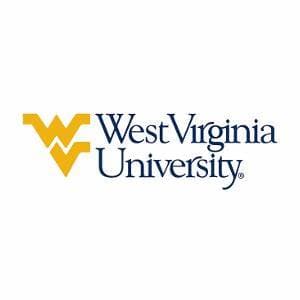

West Virginia University Institute of Technology, known as WVU Tech in Beckley, specializes in baccalaureate and associate degrees with a strong emphasis on engineering, sciences, business, and health professions, serving the southern West Virginia region with hands-on, career-focused education.
The campus integrates liberal arts to round out technical education, ensuring graduates are well-versed in ethics, diversity, and global issues. With about 1,800 students, WVU Tech offers small classes, dedicated faculty, and modern facilities like the advanced engineering labs and simulation centers. Co-op and internship programs connect students to employers in coal, renewables, healthcare, and tech sectors. Athletics, student organizations, and leadership initiatives foster teamwork and personal growth. As part of WVU, Tech students access resources like online libraries and transfer options. The curriculum addresses workforce demands, particularly in Appalachia's transitioning economy, by promoting innovation in sustainable technologies and community health. Graduates achieve high placement rates, often staying to bolster local development. WVU Tech upholds the university's commitment to accessible higher education, empowering students from diverse backgrounds to excel in STEM and professional fields, driving economic vitality and social progress in West Virginia.
West Virginia University Morgantown serves as the flagship campus, offering a comprehensive array of undergraduate, graduate, and professional programs across diverse disciplines. The Eberly College of Arts and Sciences provides foundational education in fields such as biology, chemistry, English, history, mathematics, physics, psychology, and sociology, emphasizing critical thinking and research skills essential for modern careers.
The College of Business and Economics delivers rigorous training in accounting, finance, management, marketing, and economics, with real-world simulations and internships at Fortune 500 companies. The Statler College of Engineering and Mineral Resources excels in aerospace, chemical, civil, computer, electrical, industrial, mechanical, and mining engineering, featuring state-of-the-art labs for innovation in robotics, renewable energy, and sustainable mining practices. The Davis College of Agriculture, Natural Resources, and Design focuses on agronomy, animal science, forestry, landscape architecture, and resource management, promoting sustainable agriculture and environmental stewardship. The School of Medicine offers MD programs, biomedical sciences, and public health, with clinical rotations at affiliated hospitals. The Reed College of Media trains in journalism, advertising, public relations, and visual communication, emphasizing digital storytelling and ethical reporting. The College of Creative Arts provides degrees in art, design, music, and theatre, nurturing artistic expression through performances and exhibitions. Graduate programs across all colleges advance specialized knowledge in areas like forensics, cybersecurity, and international studies, supported by cutting-edge research facilities and faculty mentorship. Overall, the Morgantown campus fosters interdisciplinary learning, leadership development, and global perspectives, preparing over 28,000 students for impactful careers in a changing world. With a commitment to experiential education, including study abroad and service-learning, graduates emerge as innovative leaders ready to address societal challenges.
West Virginia University Potomac State College, located in Keyser, functions as a regional two-year campus offering associate degrees, certificates, and pathways to four-year programs at WVU's main campus. It emphasizes accessible, affordable education in liberal arts, business, education, agriculture, and health sciences, tailored to the needs of the Potomac Highlands region.
The campus also offers workforce development in areas like culinary arts, welding, and information technology, with short-term certificates for immediate employment. Small class sizes ensure personalized instruction, and dual enrollment opportunities for high school students ease the transition to college. Extracurriculars include clubs in arts, sciences, and athletics, promoting holistic development. Potomac State College serves approximately 1,000 students, many first-generation, by providing a supportive environment that bridges academic preparation with regional economic needs, such as tourism, healthcare, and agribusiness. Through partnerships with local industries, students gain internships and apprenticeships, enhancing employability. The curriculum integrates practical skills with theoretical knowledge, encouraging community involvement and lifelong learning. Graduates often continue at Morgantown for advanced degrees or enter the workforce directly, contributing to West Virginia's growth. This campus embodies WVU's land-grant mission by extending educational access to underserved areas, promoting equity and opportunity for all learners.